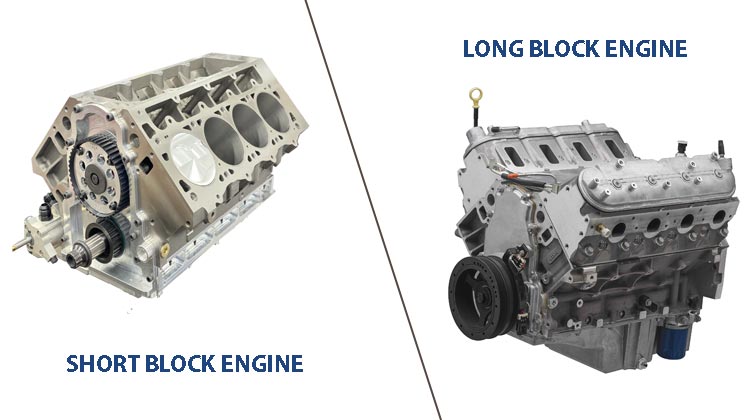When it comes time to repair or upgrade your car engine, you may be wondering if a short block or long block is the right option for you. Both options have their pros and cons, so it can be difficult to decide which is best for your needs. In this guideline, I will discuss the differences between short block vs long block engines so that you can make an informed decision about what is best for your vehicle.
Short Block vs Long Block Car Engine: Detailed Analysis
When it comes to car engines, there are two main types of engine blocks: short block and long block. As their names imply, the major difference between the two is the length of the engine block. A short block engine is typically used in smaller cars and has a shorter engine block than a long block engine. A long block engine is typically used in larger cars and has a longer engine block. Now I will discuss about the both engine in detail:
Short Block Car Engine:
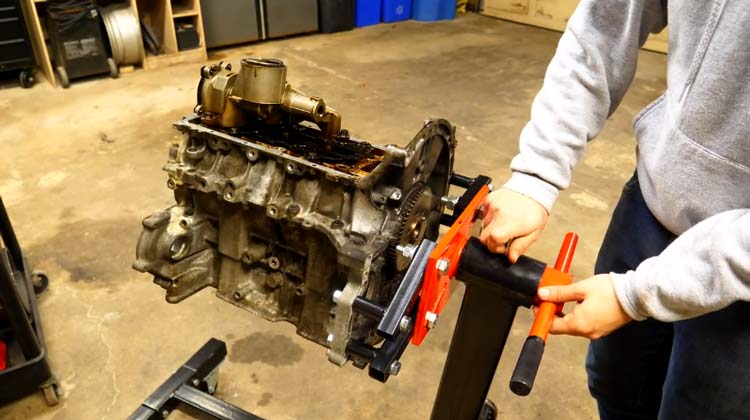
The short block engine is the lowermost part of a car’s engine and includes the cylinder block as well as other key components, such as the crankshaft, cam pistons, and connecting rods. This term generally refers to the entire rotating assembly.
Although engine builder companies usually have similar packages, some short blocks may come with camshafts and timing belts. Short block engines also require other parts such as gaskets, cylinder heads, and oil pumps that must be bought independently.
If you want to learn how to build an engine on your own, a short block engine is perfect for you. It’s a great way to get some hands-on experience and learn more about the process of replacing an engine.
Long Block Car Engine:
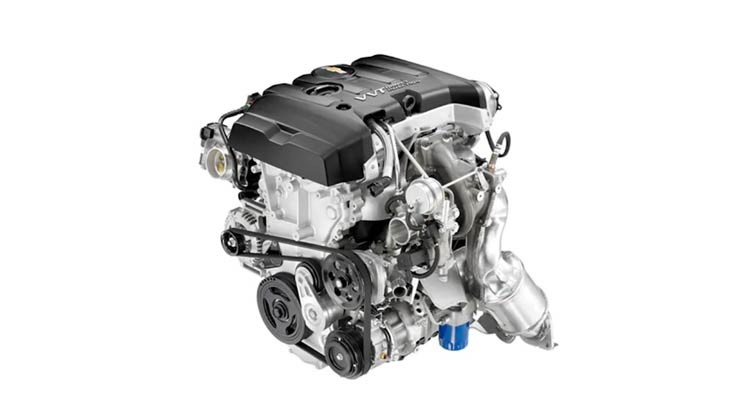
A long block engine is a more complete version of a short block. In addition to the assembled block, it features a camshaft, lifters, valve train, and cylinder head. A long block may also come with an oil pan, water pump, and valve covers. Long blocks are usually used when diagnostics indicate that a vehicle needs an engine overhaul.
Although a long block engine has more components than a short block, it is not a complete engine package. For example, it does not include the fuel system, intake manifold, exhaust manifolds, or electrical components. If you need to replace any of these parts or every other part of the engine assembly considers ordering a “turn-key” engine.
Many people mistake short block and long block engines for small block and big block engines, although there is a big distinction between the two. To clarify, short block or long block refers to the number of assembly parts included, while small blocks vs. big blocks are engine size.
Key Differences Between Short Blocks And Long Blocks Engines:
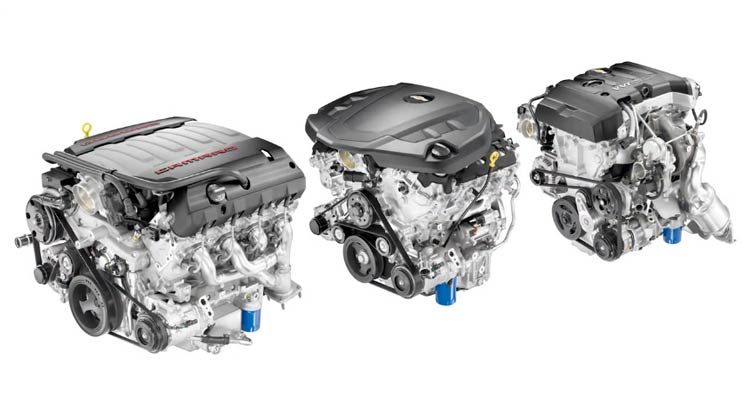
The main distinction between a short block and a long block engine is what comes included in the purchase. A long block contains a cylinder head along with most internal parts, while a short block only consists of the lower half of the motor. There are a few key differences between the two versions that are worth taking a closer look at.
Engine Parts Included:
The main difference between a short block engine and a long block engine is the number of parts you get when you purchase the engine. The short block engine consists of the block, pistons, rods, and cranks. All these components are fully assembled before other additions like the timing chain, covers and camshaft might be installed.
A deluxe long block engine is a short block with the addition of an installed valvetrain and heads. It may also come with additional features such as a carburetor or throttle body, oil pan, intake manifold, and coil packs or distributors.
Do not confuse a bare block engine with one that is already equipped with the necessary rotating components. A “bare block engine” refers to an aluminum or cast iron block that requires machining before it can be used as a car engine. In contrast, a “rotating assembly” comes with pistons, rods, and cranks that are balanced and with the required bearings.
Cost Difference Between Short Block And Long Block:
Short block engines are generally cheaper to buy upfront. For most short block engines, you can expect to spend between $1,200 and $5,000. Keep in mind that the final price will depend on your vehicle’s year, make and model. You may also be able to find a used short block engine for a lower price.
A long block engine is going to cost you more money upfront, but it will save you time and money in the long run. A long block engine typically costs between $2,500 and $6,000. The final price will again depend on your vehicle’s year, make and model. You might be able to find a used long block engine for a lower price.
Installation Process Difference:
Installing a short block engine is a big job, but it is doable if you have some experience with car engines. If you are not comfortable working on car engines, it is best to leave the job to a professional mechanic.
Installing a long block engine is a much bigger job than installing a short block engine. It is best to leave the job to a professional mechanic if you are not comfortable working on car engines.
Installation Time Difference:
With a short block engine, you get more bang for your buck in terms of customization. However, the installation process takes longer since you have to fit all the additional parts yourself. If you outsource the installation, be prepared to shell out some extra cash.
However, the long block engine is a pre-assembled unit that has all the required parts fitted and ready to work. You will only need to add a few extra parts if any. This design makes it much easier and quicker to install a long block engine.
Warranty: Short Block vs Long Block Engines
A short block engine generally comes with a 3-year or 36,000-mile warranty. A long block engine usually comes with a 5-year or 60,000-mile warranty. The final warranty will depend on the manufacturer.
It is important to remember that the warranty only covers defects in workmanship and materials. It does not cover damage caused by improper installation, lack of maintenance, or accidents.
Pros and Cons of a Short Block Engine:
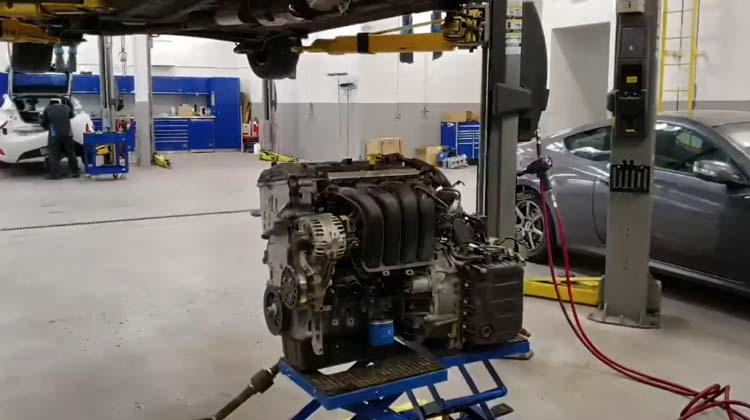
Pros:
- Cheaper to buy upfront
- More customization options
- Gives users a better learning experience
Cons:
- Takes longer to install
- Requires more experience to install correctly
- The parts need to tune up
- More complicated than a long block
- The warranty only applies to the Block part.
Pros and Cons of a Long Block Engine:
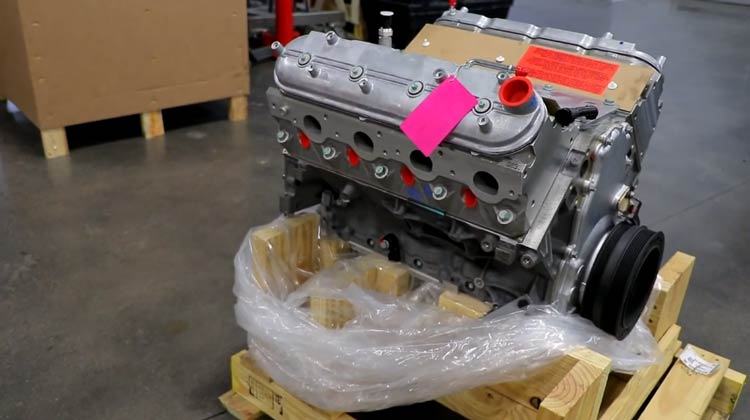
Pros:
- Quicker and easier to install
- More reliable
- The package comes with a warranty.
Cons:
- More expensive to buy upfront
- Fewer customization options
- Lacks some features that a turn-key engine has
Choose The Right Engine: Short Block vs Long Block
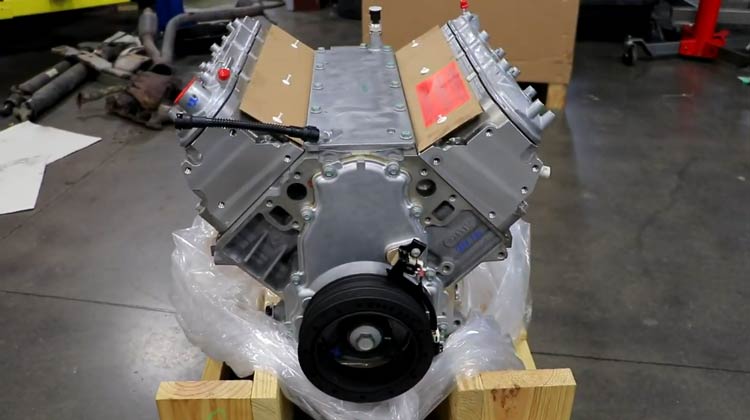
Now that you know the key differences between a short block engine and a long block engine, it is time to decide which one is right for you.
So, a short block or long block engine – which is the better option? If you’re looking for dependable performance and quicker installation, you might prefer the long block. With many of the parts already preinstalled, there’s less that can go wrong. You might also spend less on this option, particularly if you’re having it installed by a professional mechanic.
However, keep in mind that not every long block is compatible with all makes and models. If you want your vehicle to perform as it did when it left the factory, find a comparable long block from a reputable dealer. Make sure the new one works well with your car’s ECU and transmission too.
Short block engines provide more customization than long block engines, so you can install a variety of external components based on your needs. For example, if you wanted to add a performance cylinder head, you could do that easily with a short block engine. However, the long block comes with a preinstalled cylinder head which makes it difficult to upgrade parts.
If you want increased motor performance, go for a short block engine. On the other hand, most consumers will be satisfied with a long block engine because it is cheaper and easier to replace.
FAQs:
Q: What are the benefits of a short block engine?
A: Short block engines offer more customization options and provide users with a better learning experience. They are also generally cheaper to buy upfront.
Q: What are the benefits of a long block engine?
A: Long block engines are quicker and easier to install, and they are more reliable. Many also come with a warranty.
Q: Which is better, a short block engine or a long block engine?
A: The best option for you will depend on your specific needs and preferences. If you’re looking for dependable performance and quicker installation, you might prefer the long block. With many of the parts already preinstalled, there’s less that can go wrong. You might also spend less on this option, particularly if you’re having it installed by a professional mechanic.
Q: Which engine block is long-lasting?
A: There is no definitive answer, as both short block and long block engines can last for many years if properly maintained. Ultimately, it will depend on the quality of the parts used and how well you take care of your vehicle.
Q: What is the most important thing to keep in mind when choosing an engine block?
A: Make sure to find a reputable dealer and choose an engine block that is compatible with your car’s ECU and transmission. This will help ensure that your vehicle performs as it should.
Conclusion:
Both short block and long block engines have their own set of pros and cons. There is no definitive answer as to which one is better – it will ultimately depend on your specific needs and preferences. If you’re looking for increased motor performance, go for a short block engine. On the other hand, most consumers will be satisfied with a long block engine because it is cheaper and easier to replace. Be sure to do your research and find a reputable dealer before making your final decision.
I hope you found this guide helpful. If you have any further questions about – Short Block vs Long Block Car Engine, feel free to reach out to me. I would be more than happy to assist you.
